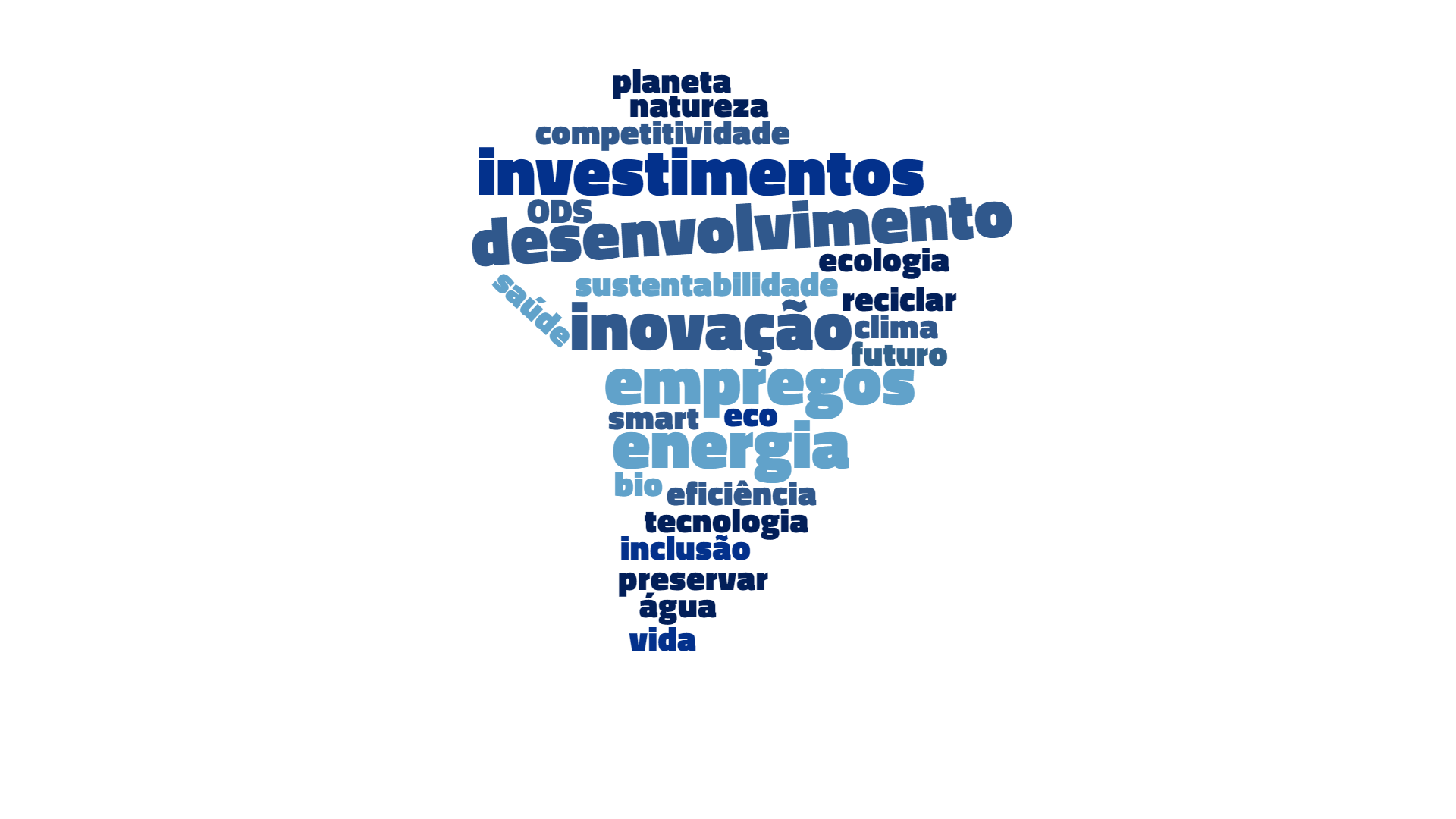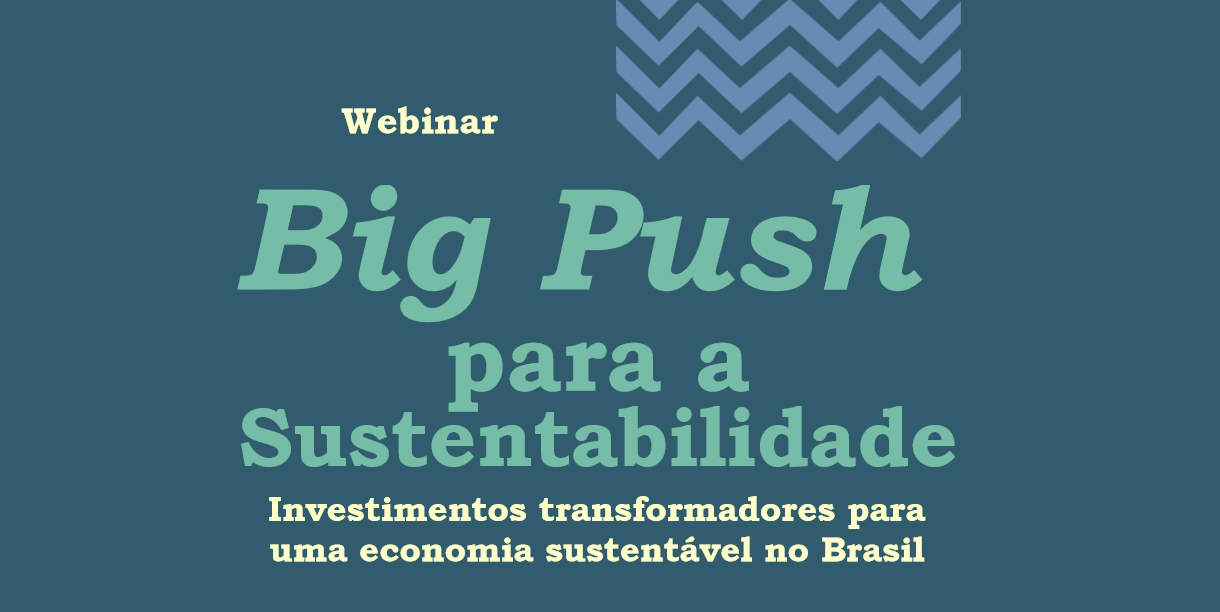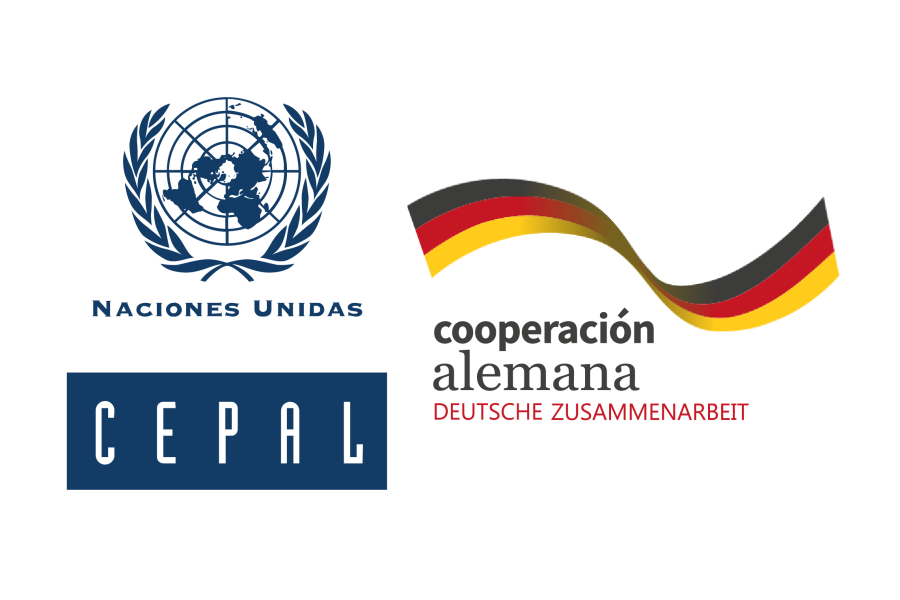ECLAC presents cases of transformative investments for a sustainable economy in Brazil
Áreas de trabajo
On May 26th, the ECLAC office in Brasilia, together with the Brazilian Global Compact Network, held a webinar about the "Big Push for Sustainability", in which more than 60 case studies of investments for sustainable development in Brazil were presented.

(May 26th, 2020) The United Nations Economic Commission for Latin America and the Caribbean (ECLAC) is developing the Big Push for Sustainability, which is a renewed approach to support countries in the region in building more sustainable development styles, based on coordinating policies to promote transformative investments in existing styles.
In 2019, ECLAC, in collaboration with the Brazilian Global Compact Network and the Institute for Applied Economic Research (IPEA), with the support of the Friedrich Ebert Foundation (FES) and the cooperation program between ECLAC and the German Federal Ministry for Economic Cooperation and Development (BMZ) through the German Technical Cooperation (GIZ), carried out the Open Call for Case Studies on Investment for Sustainable Development in Brazil. The call is part of the Big Push for Sustainability in Brazil case study project, which aims to give visibility and showcase opportunities for experiences and initiatives that have generated concrete results for sustainable development. From these, the opportunities and challenges of a Big Push for Sustainability in the country will become more evident.
Since the call, 31 case studies of investments for sustainable development have been received. including a great diversity of sectors, plurality of stakeholders, heterogeneity of regions and variety of initiatives. In terms of sectors, most of the cases are related to infrastructure (30% of the total number of studies), followed by agriculture and land use (28%), industry (13%) and recycling and waste (11%). With regard to the types of initiatives analyzed in the cases, the main ones were related to public policies (26% of the total number of studies) and business policies (19%), followed by international cooperation policies (5%), measures implemented by System S (2%) and combinations. In terms of geographic coverage, most cases were concentrated at the national level (28%), and the studies also focused on the areas of the Southeast (20%), Northeast (17%), South (13%), North (12%), Center-West (8%) and combinations of these.
On May 26th, the webinar "Big Push for Sustainability" was held in collaboration with ECLAC and the Brazilian Network of the Global Compact. The objective of the webinar was to launch the online repository with more than 60 case studies on investments for sustainability in Brazil. The 66 studies considered eligible as "Big Push" cases for Sustainability were included in the "Reposito de casos sobre o Big Push para a Sustentabilidade no Brasil", according to an analysis conducted by the Evaluation Committee, composed of sustainable development specialists from IPEA, the Federal Government of Brazil and ECLAC. The eligibility criteria are described in the Rules of the Call, the most important being that the case studies should be able to report at least one indicator for each dimension of sustainable development (economic, social and environmental).
Another purpose of the webinar was to announce the cases of investments selected as the most transformative towards sustainable development, which make up a publication that was also presented at the event. Among the 66 eligible cases, the Evaluation Committee also selected the 15 most transformative case studies towards the Big Push for Sustainability in Brazil, which compose the publication "Transformative Investments for a Sustainable Development Style: Big Push Case Studies for Sustainability in Brazil".The criteria for selecting the most transformative cases were the number of indicators reported in the three dimensions (social, economic and environmental) and the analysis of the links between the case study and the Big Push for Sustainability and the 2030 Agenda for sustainable development, in addition to trying to represent the heterogeneity and plurality of the challenges and solutions of the Big Push for Sustainability in Brazil. The selected cases can be found in the list below.
ECLAC Executive Secretary Alicia Bárcena gave the opening speech on the Big Push for Sustainability in Latin America and the Caribbean. According to Ms. Bárcena, "The changes we are currently facing reinforce the need for action. The massive investments needed for the transition to a healthy, resilient, low-carbon, inclusive, and sustainable economic model are an opportunity to generate a major push for sustainability in Latin America and the Caribbean.”
"The Big Push for Sustainability can be the guiding axis of a sustainable exit strategy from the current crisis, contributing to the construction of a style of development and becoming the engine of a virtuous development cycle."
The event was attended by specialists, authorities and people who lead transformative investment agendas in Brazil.
For Gustavo Fontenele e Silva, Coordinator of Sustainability and Competitiveness of the Special Secretariat for Productivity, Employment and Competitiveness of the Brazilian Ministry of Economy, and member of the Evaluation Committee, "the Big Environmental Push initiative for Sustainability of ECLAC has demonstrated Brazil's leadership in the program of responsible socio-economic and environmental development and presents successful models for the resumption of economic growth based on the green economy."
For Julio César Roma, researcher at the Institute of Applied Economic Research (IPEA) and member of the Evaluation Committee, "the more than sixty case studies selected by Big Push for Sustainability show that sustainable development in Brazil is not an unattainable dream, but a possible reality. May this sample inspire many other sustainable investments in our country".
For Lucimar Souza, Deputy Director of Territorial Development at the Amazon Environmental Research Institute (IPAM), "The Sustainable Settlements in the Amazon Project achieved its goal by generating references on how to contribute to sustainability in settlements and other territories in the Amazon, demonstrating that it is possible to improve the income and quality of life of local populations and also to reduce deforestation and promote environmental services.”
For Cairo Bastos, an indigenous expert from the National Indian Foundation (FUNAI) and co-author of the case "Big Push for Sustainability in Brazil: the contribution of the Tukûna of the Middle Juruá River (AM)," "the traditional Tukûna peoples of the southwestern Amazon demonstrate that development projects can generate income and are sustainable and inclusive. Indigenous culture is a map of the potential and wealth of Latin America and is a contribution to any approach to development."
According to Leonardo Bichara Rocha, Program Officer for Brazil of the International Fund for Agricultural Development (FIDA) and co-author of the case "Increasing Climate Resilience and Fighting Rural Poverty through Emergency Actions to Combat Drought: The Case of Agroforestry Systems in Procase - FIDA", "this project has resulted in works to improve access to water for more than 22,000 families in the driest regions of Paraíba." In addition to wells, dams and sustainable energy irrigation, desalination plants, for example, were built at a 20% lower cost than had been done in Brazil so far, with an innovative social management mechanism, by the rural communities themselves. The results were an increase in the production and sale of sheep for 60% of the region's families and improved fodder practices, as well as a reduction in malnutrition rates and the innovative application of agroforestry systems in Caatinga.
For Fernanda Westin, researcher at the Interdisciplinary Laboratory for the Environment (LIMA) of the Federal University of Rio de Janeiro (UFRJ) and co-author of the case "Local content policy and financial incentives in the wind energy market in Brazil", "the development of the supply chain and wind energy generation in Brazil has generated a virtuous circle of economic development, social and environmental policies provided by the Local Content Application public policies together with the attractive financing of the National Development Bank (BNDES), tax incentives and energy auctions, which allowed the creation of 300 new companies, 158 thousand jobs (from 2009 to 2017), the reduction of the wind energy tariffs and the reduction of greenhouse gas emissions, with emphasis on the distribution of income in the Northeast, where 80% of the country's wind farms are located.”
Casos seleccionados:
-
• Lages Cogeneration Unit: an example of the transformative potential of the circular economy
José Lourival Magri and Mario Wilson Cusatis, from ENGIE Brasil Energia -
From subsistence to development: the construction process of the Association of Recyclable Material Collectors of Lavras – MG
Eliane Oliveira Moreira (Master of Sustainable Development and Extension, Federal University of Lavras) and Jucilaine Neves Sousa Wivaldo (Municipal Secretary of Social Assistance, Municipality of Perdões, Minas Gerais) -
Big Push for Sustainability in Brazil: the contribution of the Tûkûna of the Middle Juruá River (AM)
Cairo Guilherme Milhomem Bastos, Fernando Esteban do Valle and Tatiana Ribeiro Souza Brito, from the National Indian Foundation (FUNAI). -
Sustainable settlements in the Amazon: the challenge of family production in a low-carbon economy
Erika de Paula P. Pinto, Maria Lucimar de L. Souza, Alcilene M. Cardoso, Edivan S. de Carvalho, Denise R. do Nascimento, Paulo R. de Sousa Moutinho, Camila B. Marques and Valderli J. Piontekowski, from the Amazon Environmental Research Institute (IPAM) -
Sustainable development and generation of positive impacts: the case of Natura and the Amazon
Natura -
The action model of the Campos dos Goytacazes Innovation Center
Rogerio Atem de Carvalho, Campos dos Goytacazes Innovation Center (PICG), Instituto Federal Fluminense (IFFluminense) -
Social technologies as a boost to access to water and sustainable development in rural Brazil: the experience of the Cistern Program
Vitor Leal Santana and Lilian dos Santos Rahal, from the Brazilian Ministry of Citizenship• Increasing climate resilience and fighting rural poverty through emergency measures to fight drought: the case of agroforestry systems in Procase - FIDA
Leonardo Bichara Rocha (International Fund for Agricultural Development - FIDA), Thiago César Farias da Silva (Procase, Paraíba) and Donivaldo Martins (FIDA) -
Wastewater treatment technology: an alternative for rural basic sanitation and water production for agricultural reuse in the semi-arid region of Brazil
Mateus Cunha Mayer (Instituto Nacional do Semiárido - INSA), Rodrigo de Andrade Barbosa (INSA), George Rodrigues Lambais (INSA), Salomão de Sousa Medeiros (INSA), Adrianus Cornelius Van Haandel (Universidade Federal de Campina Grande) and Silvânia Lucas dos Santos (Universidade Federal do Rio Grande do Norte). -
Tipitamba Project: transforming landscapes and sharing knowledge in the Amazon
Osvaldo Ryohei Kato, Anna Christina M. Roffé Borges, Célia Maria B. Calandrini de Azevedo, Debora Veiga Aragão, Grimoaldo Bandeira de Matos, Lucilda Maria Sousa de Matos, Maurício Kadooka Shimizu, Steel Silva Vasconcelos and Tatiana Deane de Abreu Sá, from the Brazilian Agricultural Research Company (Embrapa). -
Cambona 4 Agroforestry System: an example of promoting sustainability in southern Brazil
Airton José Morganti Júnior (Machadinho Consortium), José Lourival Magri (ENGIE Brasil Energia) and Selia Regina Felizari (Machadinho Yerba Mate Producers Association - Apromate). -
The Suzano Environmental Restoration Program: lessons learnt for investments in the recovery of degraded pastures in Brazil
Sarita Severien, Tathiane Sarcinelli and Yugo Matsuda, from Suzano -
Green polymers: technology to promote sustainable development
Adriana Mello, Jorge Soto and José Augusto Viveiro, from Braskem. -
Companhia Siderúrgica do Pecém: the industrial big push of Ceará State
Alex Maia do Nascimento, Claudio Renato Chaves Bastos, Cristiane Peres, Emanuela Sousa de França, Italo Barreira Ribeiro, Leonardo Roger Silva Veloso, Livia Bizarria Prata, Marcelo Monteiro Baltazar, Ramyro Batista Araujo, Ricardo Santana Parente Soares, Rodrigo Santos Almeida and Vanilson da Silva Benica, from Companhia Siderúrgica do Pecém (CSP). -
Local content policy and financial incentives in the wind energy market in Brazil
Britta Rennkamp (African Climate and Development Initiative, University of Cape Town), Fernanda Fortes Westin (Energy Planning Program, Alberto Luiz Coimbra Institute for Postgraduate Studies and Engineering Research, Federal University of Rio de Janeiro - PPE/COPPE/UFRJ) and Carolina Grottera (PPE/COPPE/UFRJ).
Contenido relacionado
Big Push para a Mobilidade Sustentável no Brasil
A Comissão Econômica para a América Latina e o Caribe (CEPAL) das Nações Unidas desenvolveu uma abordagem para apoiar os países da região na construção de estilos de desenvolvimento mais…
Energy Big Push (Grande Impulso Energia) Brasil
A Comissão Econômica para a América Latina e o Caribe (CEPAL) das Nações Unidas desenvolveu uma abordagem para apoiar os países da região na construção de estilos de desenvolvimento mais…

Sede(s) subregional(es) y oficina(s)
País(es)
-
Brasil
